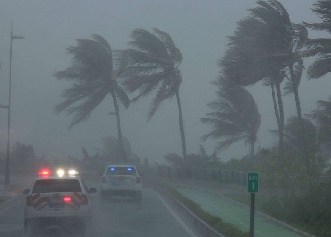The Importance of “Geographical Indications” on Caribbean Produced Products


by The Marathoner ― Meegan Scott
TORONTO, Canada – Caribbean Diasporans may be astonished to learn that Cuba has 1001 Geographical Indications (GIs) while Jamaica has only 3 and Trinidad 1.
And in case diasporans still don’t know what GIs are, WIPO defines them as “a sign used on products that have a specific geographical origin and possess qualities or a reputation that are due to that origin”.
The main function of a GI is to indicate a connection between that quality, reputation or characteristic of that good and its territory of origin.
GIs was the main subject of a virtual seminar recently held in Toronto― entitled― “Old Markets, New Markets, Different Results”. It was delivered under the Outride: COVID _19 Business Threat Seminar Series by Magate Wildhorse Consulting, and The Community of Practice for Caribbean Immigrant Entrepreneurs.
Massimo Vittori, guest speaker at the event explained that GIs are usually owned by “producers and companies which produce specific goods that are deeply rooted in specific geographic environments and cannot be reproduced anywhere else because of:
- climate
- natural conditions
- special skills and traditions that are very specific in those areas
- as well as traditions for production
His explanation is specific to GIs related to agriculture and the conversation around the opportunity presented by GIs for strengthening agricultural value chains― a critical need, acerbated by the coronavirus crisis― in both Canada and Jamaica.
He invited the gathering to take the case of Jamaica and its Blue Mountain Coffee.
“Blue Mountain Coffee is peculiar to Jamaica― that gets it a higher price in international markets because of the special quality linked― to the Blue Mountains. It is appreciated at a higher price because it cannot be reproduced anywhere else. Its quality is derived from the attributes of the Blue Mountains where it is grown.
How it Works
GIs are assigned intellectual property title at the national level. Every association that groups all the producers of a given area, which respects certain traditions and certain conditions can benefit. “It is important to stress that GIs are not the property of a single company or one producer, says Massimo.
GIs helps producers to export, promote and protect their work among other task depending on the country and condition.
Massimo is the executive director of oriGIn an NGO based in Geneva, Switzerland that represents some 600 Geographical Indicator Associations from 40 countries. China, Cuba, France, Morocco, the USA, and Ireland are among the countries represented.
Producers join oriGIn for ensuring their GI gets well known internationally and that the legal protection at the international level by international treaty and bi-lateral agreements become stronger. He said, “OriGIn hope to add a Jamaican member to our international family soon“ .
The organization has been in touch with Jamaican producers of rum, Jamaican Jerk, and the Intellectual property office, JIPO.
Why GIs Are Particularly Relevant Given the COVID Crisis?
While GIs have always been relevant because of their role in connecting products to geography and tradition. They are also relevant because they concern producers who are very proud to be part of those businesses.
GIs allow certain agricultural areas to keep attracting people and to stop the phenomenon of depopulation of rural areas, a problem in both developed and developing countries, says Massimo.
Creating decent jobs and halting rural to urban drift is crucial to delivering Sustainable Development Goal 8 (SDG 8). Accelerating the delivery of the Global Goals through the use of evaluation and the Eval4Action Campaign was also a subject of the seminar.
COGNAC and Champagne of France as well as Tequila of Mexico represents popular GIs. Canadian GI products include Ontario peaches and nectarines and Ice Cider from Quebec.
It’s relevance is currently increasing because the COVID crisis has accelerated debate around a more calibrated relationship with nature, which can be summed up in the concept of sustainability.
“How can we create wealth and economic resources in agriculture with respect for the environment?” “And with respect for important social values”. Within those questions are concerns for food safety and food security” explained Massimo.
Today, the global community is in a race to reverse COVID _19 triggered lost in gains related to the attainment of SDG 2 : Zero Hunger. SDG 2 has been named as a greater priority than SDG 1: No Poverty, for Jamaica and the Caribbean.
Why is GI a sustainable model?
“Because the production cannot be de-localized, the traditions of production have been around for decades and in some instances for centuries as in the case of Europe”. And producers have historically been looking after and caring for their environmental resources. Normally they are the result of an extensive rather than intensive agricultural practice. There is still room for progress in different sectors; each comes with its own challenges”, he said.
“ Nonetheless, in the process of responding to environmental challenges GIs can be considered to be in a very well and strategic position”.
Similarly, when it comes to social considerations― “there is also an element of social sustainability― and of course economically― these are sound businesses”. “Imagine in the complex value chains of those products you need to find agreements between producers and transformers, in order to ensure that the added value that is generated through those businesses – basically the premium price paid by consumers who buy on quality is equally shared within the value chain” says Massimo.
Customers looking for specific quality are willing to pay a premium price. Therefore, allowing businesses and people around those businesses to receive a good return on investment and quality pay for their work”, he continued.
How to Make Strategic Alliances for GIs between Producers and Diasporans
“Some of you are Jamaicans but you live abroad; it is therefore important to understand the best kinds of GI alliances between GI Producers in Jamaica and other Caribbean countries and diasporans”.
“Many of you are attached to your countries, and proud to be Jamaicans though you live abroad and so you want to produce some of those products where you are”. A Jamaican styled or alike product where you live for example. Because oftentimes they are not available or are hard to find.
However, if the Jamaican GI Producer has registered and obtained intellectual property in the market where you now live it cannot be done”. “The principle on which GIs are based also makes it impossible to produce those products elsewhere because of local attributes.
Your business “opportunity lies in connecting with GI producers in Jamaica, the country where you are or third countries and develop strategic alliances for supporting export of the products”.
Massimo continued “Get in touch with GI producers in Jamaica help them to open business channels, retail outlets or export to the country where you are, or in third countries”. He pointed out that the proposed approach presents not just a business opportunity but also “reduces risks faced by some GIs in third countries― where the name is used in a generic way”. He warned against treating products associated with GIs as a recipe that diasporans can produce in host countries.
“If you start producing Jamaican-styled Jerk in Canada you start a process that will cause the name to acquire a generic quality therefore causing it to lose geographical value in Canada”. Why? “The name would have acquired a generic quality when the original Jamaican producers are ready to protect their intellectual property in Canada”.
“How do you evaluate the contribution of GIs to the economy?”; asked Meegan, event host and principal at Magate Wildhorse Consulting.
- “By the number of people working in the value chain of Jamaican Blue Mountain Coffee or Jerk for instance. People employed versus turnover; the difference in wealth of people living in areas where GIs have been declared; as well as the rate and difference in rural to urban drift between areas with GIs. Another indicator would be areas where young people have remained in the area because of the opportunities that exist in GI areas.
Protect our GIs, support the creation of new GIs for more sustainable agricultural value chains in home and in host countries.

About the author: Meegan Scott, B.Sc. Hons, MBA, ATM-B, CL, PMP., is a Jamaican-born Strategic Management Consultant, at Magate Wildhorse Ltd in Toronto & New York. This is a syndicated column and article.





